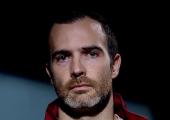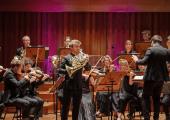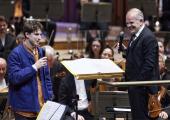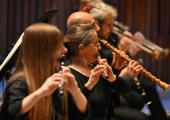Guildhall School Gold Medal 2024, Barbican review - quirky-wonderful programme ending in an award

Ginastera spolights the harp, Nino Rota the double bass in dazzling performances
While the Royal College of Music Symphony Orchestra were performing Messiaen’s Turangalîla-Symphonie – weirdly, despite its size and difficulty, a repertoire staple – over at the Royal Festival Hall, their Guildhall School counterparts presented a programme of stunning originality.








